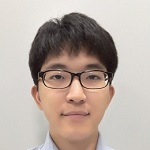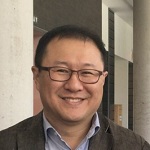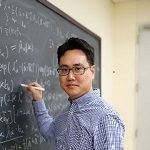
Overview of Quantum Technology Research
SKKU is the only institute developing the major quantum platforms of both superconducting and trapped ion qubits in Korea. In addition to research on quantum computing and information hardware, SKKU is also actively pursuing studies on quantum algorithms for real-world applications, particularly led by SAINT (SKKU Advanced Institute of Nanotechnology). Quantum Information Research Support Center (Qcenter) of SKKU provides research assistance for domestic researchers as well as educational activities for the next generation.
Professors and Laboratories
 Department of Nano Engineering / professor Junki Kim
Department of Nano Engineering / professor Junki Kim
Research on experimental studies on ion-trap based quantum computing and quantum engineering. We are currently working on building a 5-qubit ytterbium-based quantum computer and barium-based ion-photon quantum interface.
김준기 교수님 < Quantum Engineering with Trapped Ions (QuETI) Lab.>
Homepage ≫ https://sites.google.com/view/queti
Overall research theme : Quantum computing and simulation with trapped ions. Scalable quantum system design and comprehensive system control.
 Department of Nano Engineering / professor Yonuk Chong
Department of Nano Engineering / professor Yonuk Chong
Research on superconducting qubits and Josephson junctions. Demonstration of quantum information processing using superconducting qubits for the first time in Korea. Precision measurement and Scale-up of quantum processor.
정연욱 교수님 < Superconducting Quantum Information Research Laboratory (SQuIRL) >
Homepage ≫
Overall research theme : Superconducting quantum computing, quantum sensing, quantum information.
 Department of Chemistry / professor Joonsuk Huh
Department of Chemistry / professor Joonsuk Huh
We are developing quantum algorithms for chemical, physical, and mathematical problems such as molecular quantum dynamics, bosonic dynamics, spin dynamics, combinatorial optimization, and matrix functions.
허준석 교수님 < M-QuDIT Laboratory >
Homepage ≫ https://joonsukhuh.wixsite.com/mqudit
Overall research theme : quantum algorithms for molecular quantum dynamics, bosonic dynamics, spin dynamics, combinatorial optimization, and matrix functions.

